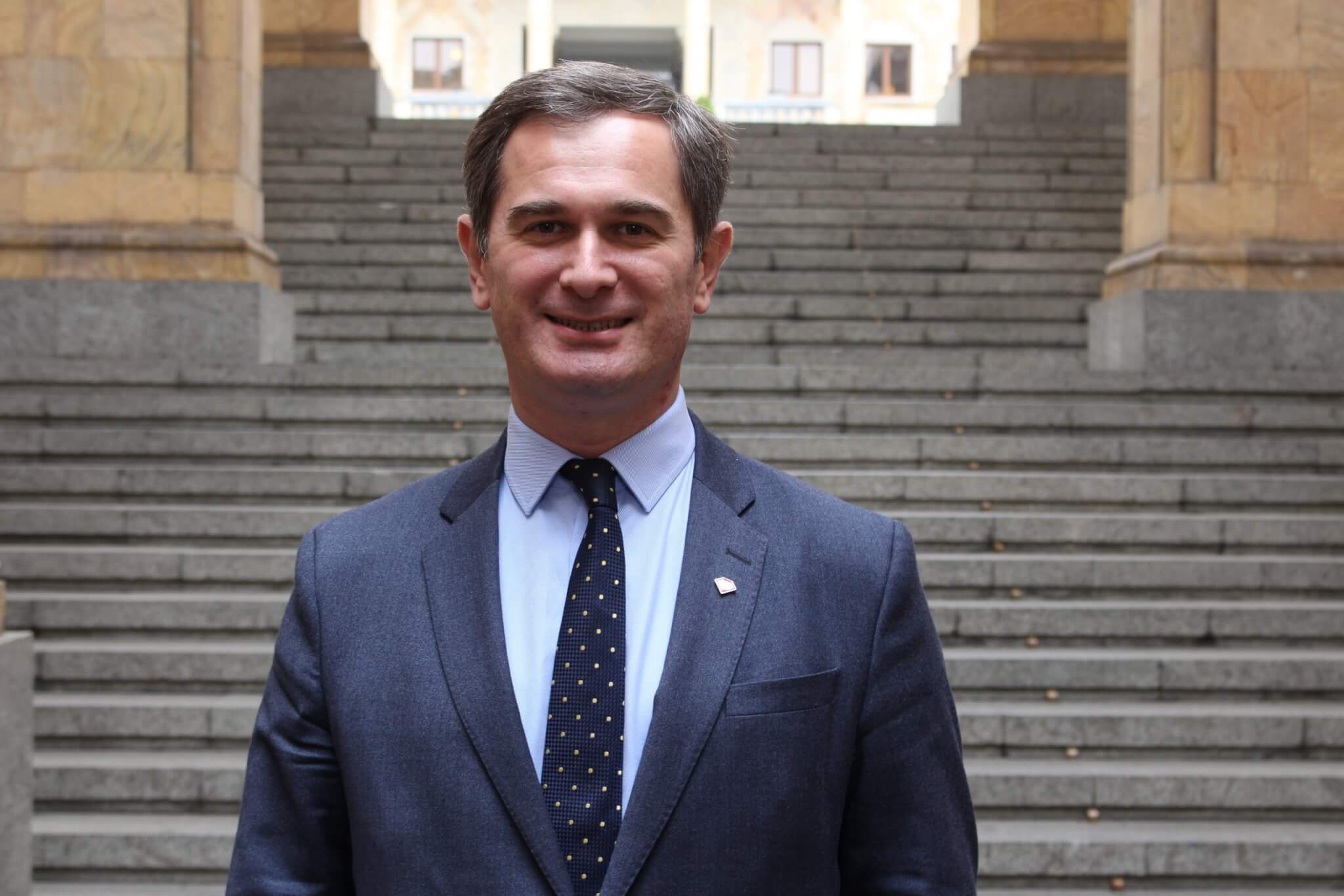Empowering Georgian society through financial inclusion

When, in 1995 at the age of 18, Archil Bakuradze founded the Charity Humanitarian Centre Abkhazeti (CHCA) to support internally displaced people in his country, little did he know that he was laying the foundations for a company which would one day become Georgia’s leading microfinance institution committed to ending poverty in the country. Perhaps no surprise as the driving force through Archil’s life and career has always been the empowering of marginalised and socially vulnerable people.
The 1990s were challenging times in Georgia, when, following the disintegration of the Soviet Union and Georgia’s declaration of independence in 1991, over 300,000 people (about 6% of the population) were internally displaced as a result of civil war and the secessionist conflicts in Abkhazia and South Ossetia. Almost no economic infrastructure remained and the small humanitarian centres opening after the ceasefire were lifelines for these internally displaced people (IDPs) who had lost their homes and livelihoods. Archil and his teams worked to ensure that CHCA was able to provide emergency relief for those affected but then also began developing its offerings to introduce a wider range of programmes including education, housing assistance and microfinancing. In fact, his CHCA work and commitment to supporting the IDPs was recognised with the prestigious Van Heuvan Goedhart award from the Dutch Refugee Foundation, (Stichting Vluchteling) in 2003.
In the year 2000, the opportunity to apply for the John Smith Trust (JST) Fellowship Programme came at a pivotal time for Archil. By then, with 6 years of practical experience working for CHCA, Archil was well aware this could be an opportunity of a lifetime to take his development ideas to the next level. He was particularly keen to build on CHCA’s microfinancing programme which by then was having important impact in Georgia and attracting international grant funding.
While in the UK, the John Smith Trust set up meetings for Archil with then MPs, Chris Pond and Alun Michael on economic and business issues, with Lord Alf Dubs on his refugee work and as well as with those at HSBC focusing on investment in the community. Archil also met with Frederick Hyde-Chambers who had developed the first Business and Parliament Dialogue Centre in Westminster – the Industry and Parliament Trust (IPT) – and whose expertise and advice Archil credits with greatly helping him build the concept of his future further ventures in microfinancing.
With an MBA at Lancaster University also under his belt a few years after his John Smith Trust experience, by early 2004 Archil’s microfinance programme spin-off from CHCA became the separate entity of Crystal. Crystal termed itself as a ‘non-banking microfinance institution supporting micro and small business sectors and working towards sustainable economic development’. Its mission was to support entrepreneurs, smallholder farmers and women to realise their business potential, reach financial stability and raise standards of living.
Archil and Crystal were well ahead of the game – it wasn’t until 2009 that the microfinance sector in Georgia really started taking off and the Georgian Microfinance Association was formed, chaired by Archil. In order to support young aspiring Georgian entrepreneurs in starting a business and teach them how to learn, network and get funding, Archil also led and championed the Coalition for Financial Literacy and Youth Entrepreneurship School, as part of the Crystal-funded initiative ‘Supporting Youth and Women Entrepreneurship in Georgia’. This was modelled on one of Archil’s inspirations from his time in the UK – the Prince’s Trust – which helps young people develop their business through funding and mentorship.
It was the rapidly developing new economic climate that led Archil to return to the concept he’d seen in action in the UK – that of a dialogue centre dedicated to better understanding between business and government to help contribute to national prosperity. He could see that a similar national forum was sorely needed in Georgia to facilitate engagement between government, legislators, the private sector and civil society so he founded and headed the Business and Economic Centre of Georgia (BEC). BEC is a Dialogue Centre supported by the UK not-for-profit body EPDI – Enterprise and Parliamentary Dialogue International.
Today Archil is the Chair of the Supervisory Board at Crystal, which continues to thrive and is one of the most fast-growing, dynamic and ethical companies of its kind in Georgia. Its transparent, innovative and smart financial solutions available to small businesses – including those who would otherwise be excluded from the traditional financial system – and their women’s empowerment programme, has made Crystal Georgia’s leading impact finance group. During the pandemic, the company was a life line to its more than 100,000 customers (predominantly in rural areas of Georgia) by providing loans and non-financial services as well as piloting the disbursement of new loans for energy efficiency projects. Another specific that Archil is very proud of: Crystal has been a signatory organisation of the Women’s Empowerment Principles for a long time. For their work in ‘Gender Equality’, one of the six UN Sustainable Development Goals adopted by Crystal, the company won Georgia’s Corporate Social Responsibility Award in 2019.
Archil’s mission to reduce poverty in Georgia is impressive and has had impressive results. The creating of entrepreneurial opportunity in a small formerly communist country in a tough neighborhood has not been an easy accomplishment! His commitment to the improvement and sustainability of his society is underpinned by his belief in good governance, rule of law and social justice – principles he shares with the John Smith Trust.
Taking part in the year 2000 John Smith Trust Fellowship Programme meant that Archil was one of its earliest Fellows. He credits the experience as having had a profound effect on him, saying,
“The John Smith Fellowship Programme has definitely shaped the last 20 years of my life and as of today, continues impacting my work and convictions. It has indeed been life-changing!’
MARCH 2021
